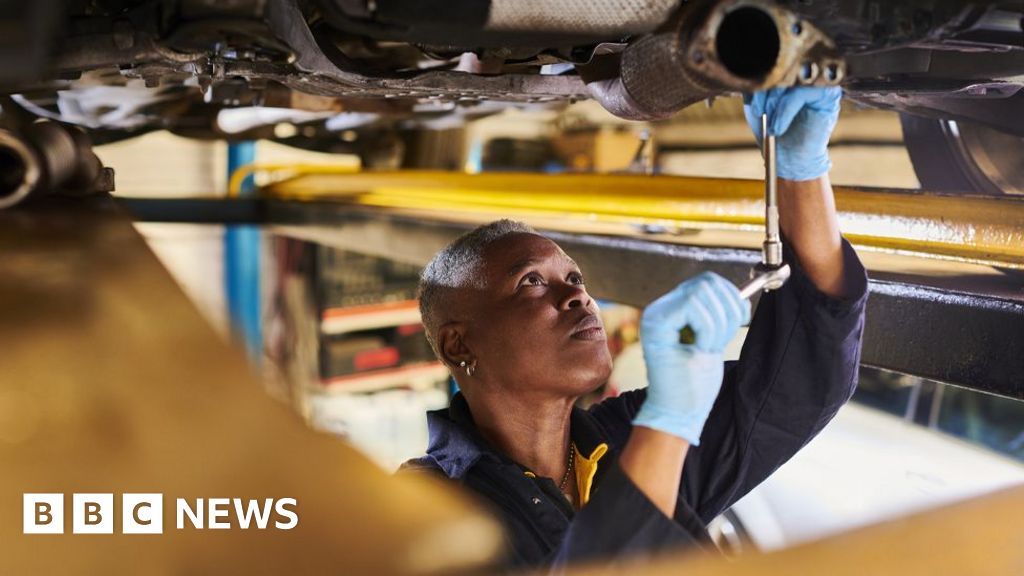ARTICLE AD BOX
Image source, Getty Images
Pension savers should have appointments scheduled automatically to help them make better decisions, MPs have suggested.
The Work and Pensions committee is calling for trials of automatic appointments with the Pension Wise service.
Its chair Stephen Timms warned pensions are in a "constant state of change".
Government and regulators must "end their timidity" in helping savers as a result, he added.
The new report by the committee suggests that "pension freedoms", introduced in 2015, have been a success. Under those changes, a pension pot can be passed on tax free if you die before the age of 75, for example.
But it says that savers need much more help than they currently get in order to navigate those changes.
MPs on the committee called for a target of at least 60% of people using Pension Wise or receiving paid-for advice when accessing their pension pots for the first time.
Pension Wise helps people aged 50 and over to make sense of their options, offering free, impartial guidance.
There should be one appointment scheduled automatically with Pension Wise when a person accesses their pension for the first time, as well as one at the age of 50, before they can access their pension savings, the committee suggests.
The government service was set up in 2015. Although the report found the service was "good", it said not enough people use it.
It is thought, however, that the cost of the introduction of automatic appointments could range between £45m and £80m a year.
Pensions 'minefield'
During its inquiry, the committee was told by the UK's financial watchdog that consumers describe pensions as a "minefield".
Mr Timms, the chair of the Work and Pensions committee, said: "When the 2015 reforms were introduced, the government guaranteed that savers would be given the tools they needed to take advantage of the new range of options and make well-informed decisions."
He warned that guidance remains the "missing part of the pensions jigsaw", leaving savers at risk of poor decisions or even becoming scam victims.
"Nudging savers will not be enough," he said.
Pensions fact-box
- 13.4 million: Projected number of people of state pension age or older in the UK by 2030
- 51%: Average proportion of pensioner income paid from state pension
- £179.60 per week: Full new state pension
- 6/10: Pensioners receiving an occupational pension
The committee report also calls on the Financial Conduct Authority (FCA) to increase the number of people choosing a mix of retirement products.
One saver might benefit from withdrawing one lump sum when they first access their pension, for example, and choosing an annuity later on, which guarantees an income.
MPs also suggested that the pensions advice allowance, which allows £500 to be withdrawn from a pension up to three times in different tax years for advice, should also be reconsidered. They recommend that the annual limit is removed and advisers should signpost it more often.
Former pensions minister Ros Altmann said that it was important pensions focus on "people, rather than the pension pot".
Baroness Altmann added: "Helping more people understand pensions and making them work better through retirement can also help improve the reputation of pensions, encourage more people to leave their money invested for longer and ultimately have more money in later life, rather than rushing to take out money as soon as they can and possibly paying unnecessary tax."
It comes one day after the government issued new measures for occupational pension schemes.
From 1 June, the schemes will be required to present guidance as a routine part of accessing pension savings under its new "Stronger Nudge" measures. They must also offer to book a Pension Wise appointment for a saver, unless they wish to opt out of receiving advice.
A spokesperson for the Department for Work and Pensions said: "We are committed to ensuring people have the support and information they need to make informed choices about their financial futures, striking the right balance between providing vital protections and informing pension savers, while also giving them freedom and choice about how to use their hard-earned pension savings."

 2 years ago
45
2 years ago
45








 English (US)
English (US)